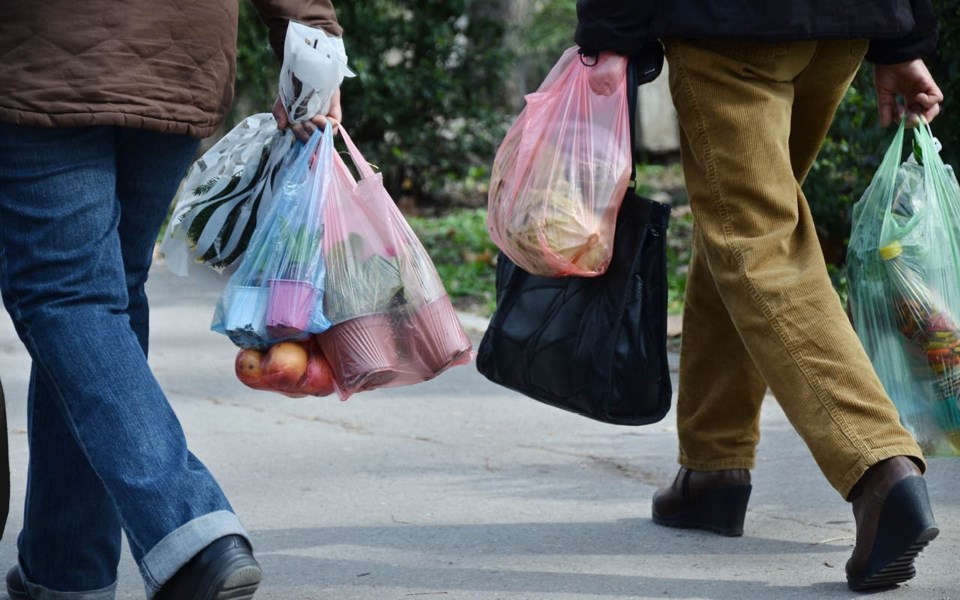JACKSON, Wyo. – Kroger, by far the largest grocery store retailer in the United States, last week announced it plans to discontinue the distribution of free plastic shopping bags by 2025. In some places, such as Colorado, the end of plastic bags could come sooner, a spokesman told the Denver Post.
In Colorado, Kroger has 143 food stores, operating under the name of City Market in mountain towns and, along the Front Range, King Soopers. In Utah, it has 51 food stores under a variety of names, including Smith's. In Idaho, it has 15 stores, and in Wyoming, nine stores.
Jackson aims to be Wyoming's first town to move away from the proliferation of throw-away shopping bags. To that end, it has been holding workshops with the business community.
"We don't want to harm businesses. We don't want to harm consumers," said Mike Yin, a community member who helped shape the proposed law. "But we do want to change behaviour."
The shift from plastic freebies to alternatives had been proposed to occur on July 1, 2019. But that's the busiest time of year for Jackson. Plus, many businesses may already have stocks of plastic bags, which won't be exhausted by then, reports the Jackson Hole News & Guide.
Then there's the debate about paper vs. plastic. Though paper decomposes faster than plastic, according to Johnny Ziem, interim director of public works, creating paper bags requires three times the energy.
In Colorado, eight towns and cities have ordinances limiting plastic bags. All but one, Boulder, is a mountain town. In Utah, only Park City has banned the bag, according to a website called banthebag.com. In New Mexico, both Santa Fe and Silver City have bag bans.
Neither Idaho nor Montana have bag bans.
Less smoke in summer, but more in spring and fall?
BEND, Ore. – It's still smoke season across large swathes of the West. In the future, smoke season might extend into the spring and fall, at least in central Oregon.
The Bend Bulletin reports that residents at recent hearings broadly supported loosening restrictions applying to smoke coming from controlled burns.
Controlled burns typically occur in spring and fall. More controlled burns could mean fewer wildfires—and hence less smoke—during summer and early fall.
Minimum wages rise for very simple reason
ASPEN, Colo. – The Aspen Skiing Co. will be paying a minimum wage of $13.50 this coming winter, plus another $1 an hour if employees stay the season. The old minimum wage was $12.
In addition, employees get ski passes, health insurance, and deep retail discounts.
"There are not a lot of employees out there," explained Aspen Skiing Co. spokesman Jeff Hanle.
Colorado's minimum wage is $10.50, but in many parts of Colorado the de facto minimum wage is higher. Vail Resorts two seasons ago raised its minimum wage from $11 to $12.25 an hour.
A softening of the market of foreign visitors to Vail
VAIL, Colo. – The Vail Daily reports the Vail municipal government forecasts only modest growth during 2019. Part of the story seems to be the softening foreign market.
Vail has long had a strong visitation from foreign countries, particularly Mexico and in recent years from Brazil, too. But there's been a faltering.
Part of it is the exchange rate. The Mexican peso has lost almost half its value against the dollar since 2008. The euro has lost a third. That makes visits to Canada more attractive.
Of course, there are people for whom money is no object. But Tom Foley, of Inntopia, said the fierce competition is among those who have money, but not so much that cost is irrelevant.
Then there is the Trump factor. Ralf Garrison, a travel consultant, says that the politics of the Trump election have also played a role in more Latin Americans travelling to Canada instead of the United States.




